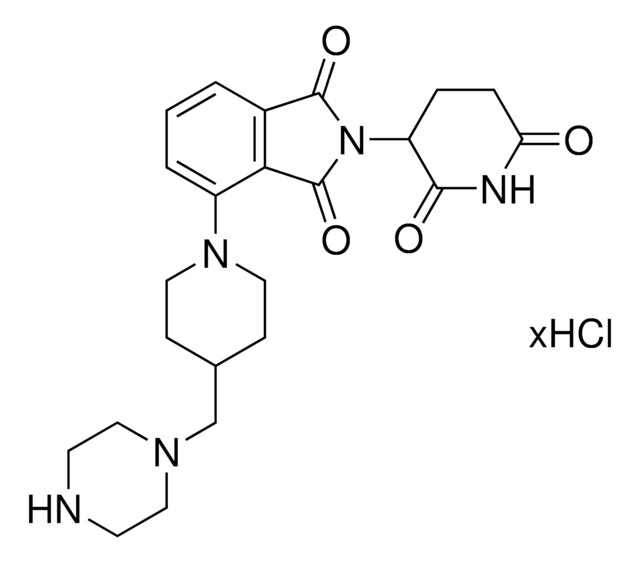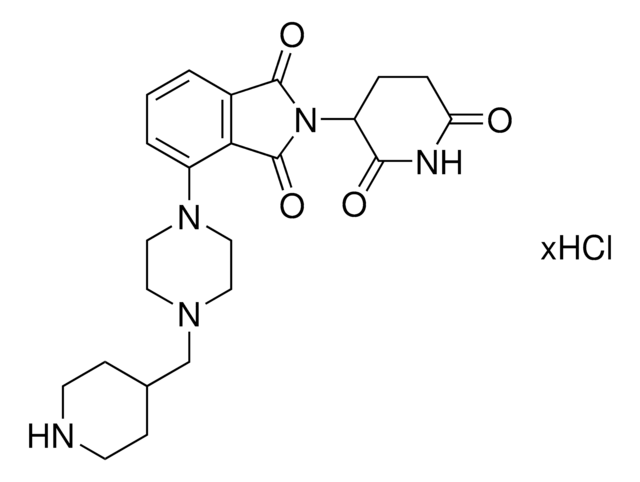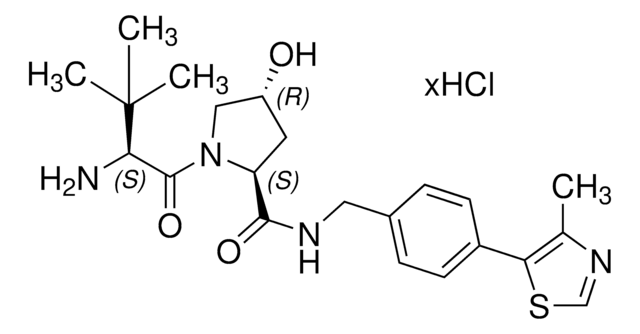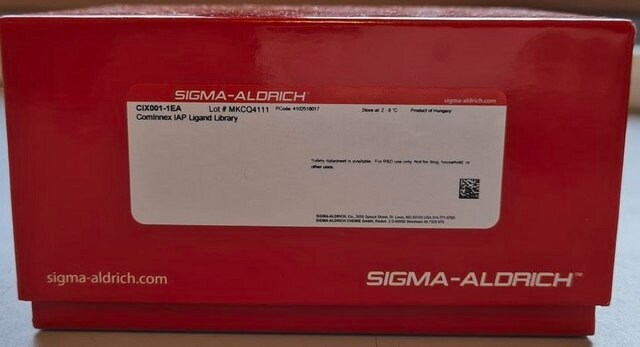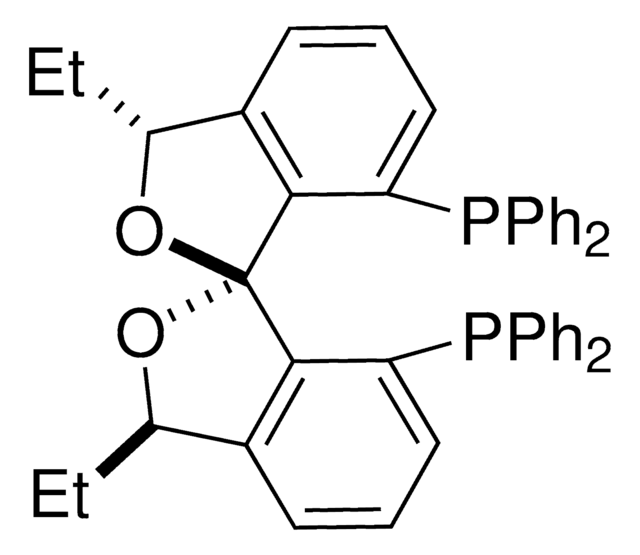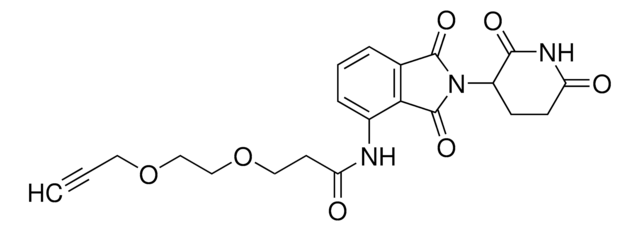905224
Pomalidomide-PEG6-butyl amine hydrochloride
≥95%
Sinónimos:
24-Amino-N-(2-(2,6-dioxopiperidin-3-yl)-1,3-dioxoisoindolin, Crosslinker–E3 Ligase ligand conjugate, Pomalidomide-2-2-2-2-2-2-6-NH2 HCl salt, Protein degrader building block for PROTAC® research, Template for synthesis of targeted protein degrader
About This Item
Productos recomendados
ligand
pomalidomide
Análisis
≥95%
formulario
powder or crystals
idoneidad de la reacción
reactivity: carboxyl reactive
reagent type: ligand-linker conjugate
grupo funcional
amine
temp. de almacenamiento
2-8°C
cadena SMILES
O=C(C(CC1)N(C2=O)C(C3=C2C=CC=C3NC(COCCOCCOCCOCCOCCOCCCCCCN)=O)=O)NC1=O.Cl
Aplicación
Otras notas
Portal: Building PROTAC® Degraders for Targeted Protein Degradation
Targeted Protein Degradation by Small Molecules
Small-Molecule PROTACS: New Approaches to Protein Degradation
Targeted Protein Degradation: from Chemical Biology to Drug Discovery
Impact of linker length on the activity of PROTACs
Información legal
Producto relacionado
Código de clase de almacenamiento
11 - Combustible Solids
Clase de riesgo para el agua (WGK)
WGK 3
Punto de inflamabilidad (°F)
Not applicable
Punto de inflamabilidad (°C)
Not applicable
Elija entre una de las versiones más recientes:
Certificados de análisis (COA)
Lo sentimos, en este momento no disponemos de COAs para este producto en línea.
Si necesita más asistencia, póngase en contacto con Atención al cliente
¿Ya tiene este producto?
Encuentre la documentación para los productos que ha comprado recientemente en la Biblioteca de documentos.
Los clientes también vieron
Artículos
Partial PROTACs are a collection of crosslinker-E3 ligand conjugates with a pendant functional group for covalent linkage to a target ligand.
Protein Degrader Building Blocks are a collection of crosslinker-E3 ligand conjugates with a pendant functional group for covalent linkage to a target ligand.
Nuestro equipo de científicos tiene experiencia en todas las áreas de investigación: Ciencias de la vida, Ciencia de los materiales, Síntesis química, Cromatografía, Analítica y muchas otras.
Póngase en contacto con el Servicio técnico